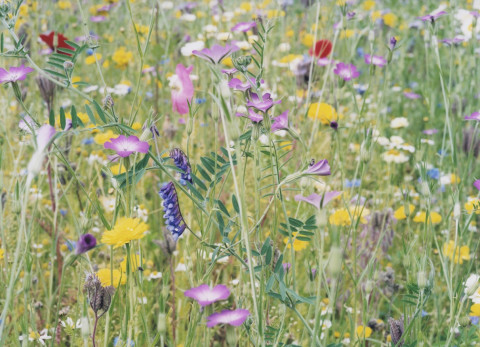Predicting plant-soil feedbacks from plant traits

Predicting plant-soil feedbacks from plant traits
To test the subterranean interactions of plant roots with their soil organisms, also named ‘plant-soil feedback’, the research team tested the responses of 48 different grassland species to their own soil biota and to control soil. The plant selection comprised grasses, legumes, and tall and short herbs. In addition, the authors determined a number of aboveground and belowground plant traits, such as the thickness of roots, and related these traits to plant-soil feedback.
Thick roots help
The international research group found that overall, the plant species grew less in soil with their own soil biota. When analysed further, it appeared that it was mostly grasses and small herbs that suffered, whereas tall herbs benefited from growing with their own soil biota. Interestingly, the thinner the plant roots of a species the more the plants suffered from negative soil biota.
The researchers revealed that it was not root thickness per se explaining the net outcome of plant-soil feedback interactions, but rather the combination of thickness and root colonisation by mycorrhizal fungi. These are fungi that help plants take up nutrients and water, while protecting them against pathogens. Plant species with more mycorrhizal fungi in their roots also had more benefits from soil biota in general.
Predicting benefits
With this knowledge about root thickness and mycorrhizal colonisation, researchers and crop breeders can predict which plant species may benefit, and which may suffer from soil biota.
This will be useful input for future research, e.g. to understand how plant diversity loss influences the composition and productivity of natural vegetation.
Publication
Roeland Cortois, Thomas Schröder-Georgi, Alexandra Weigelt, Wim H. van der Putten, Gerlinde B. De Deyn. Plant-soil feedbacks: role of plant functional group and plant traits. Journal of Ecology 24 augustus 2016.
Blog: The Quest for Predicting Plant-Soil Feedback
More information:
- Prof. dr. ir. Wim van der Putten, head of the Department of Terrestrial Ecology
- Science communicator Froukje Rienks
Photo credits: Wout Berger.
This is a joint press release with Wageningen University.
